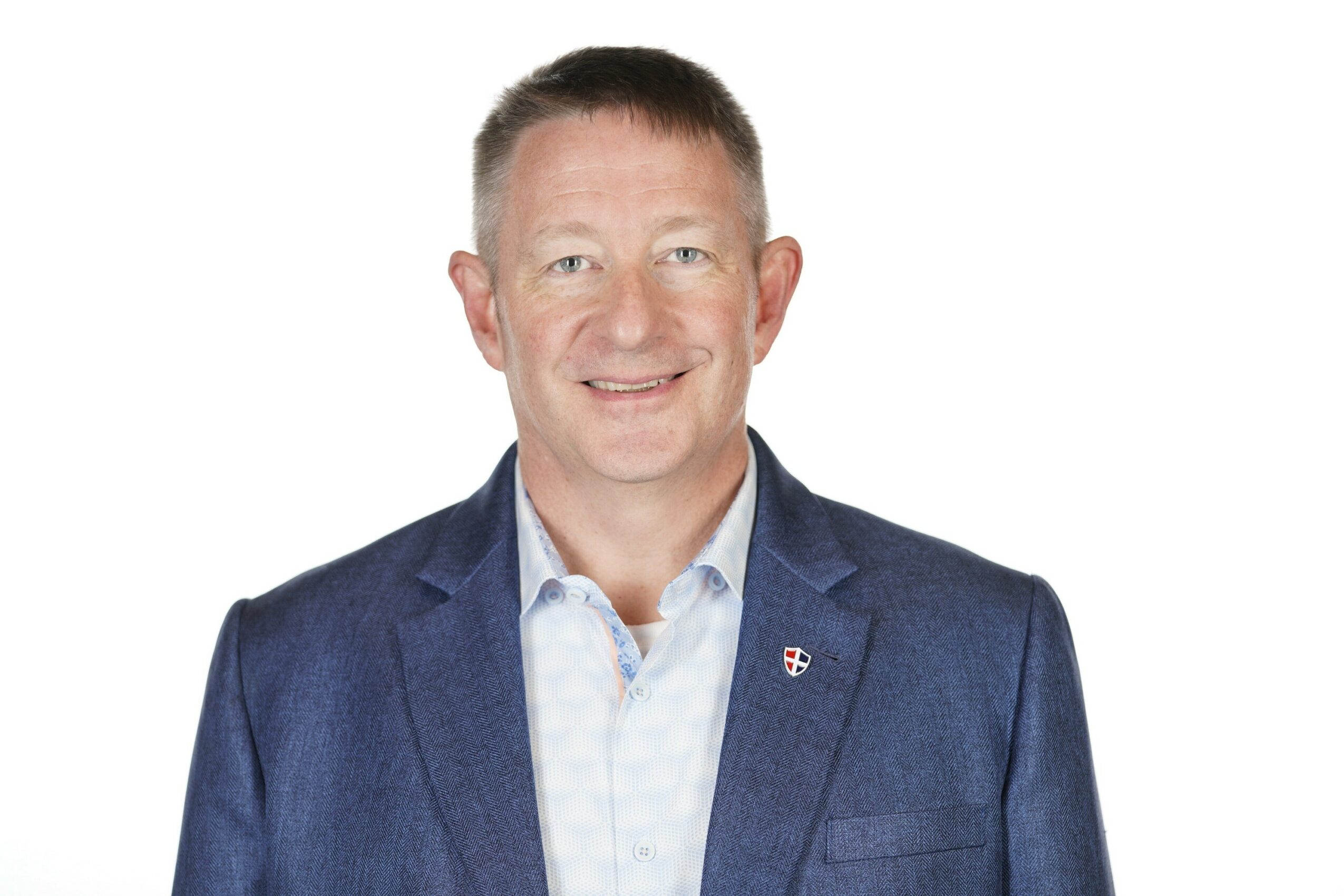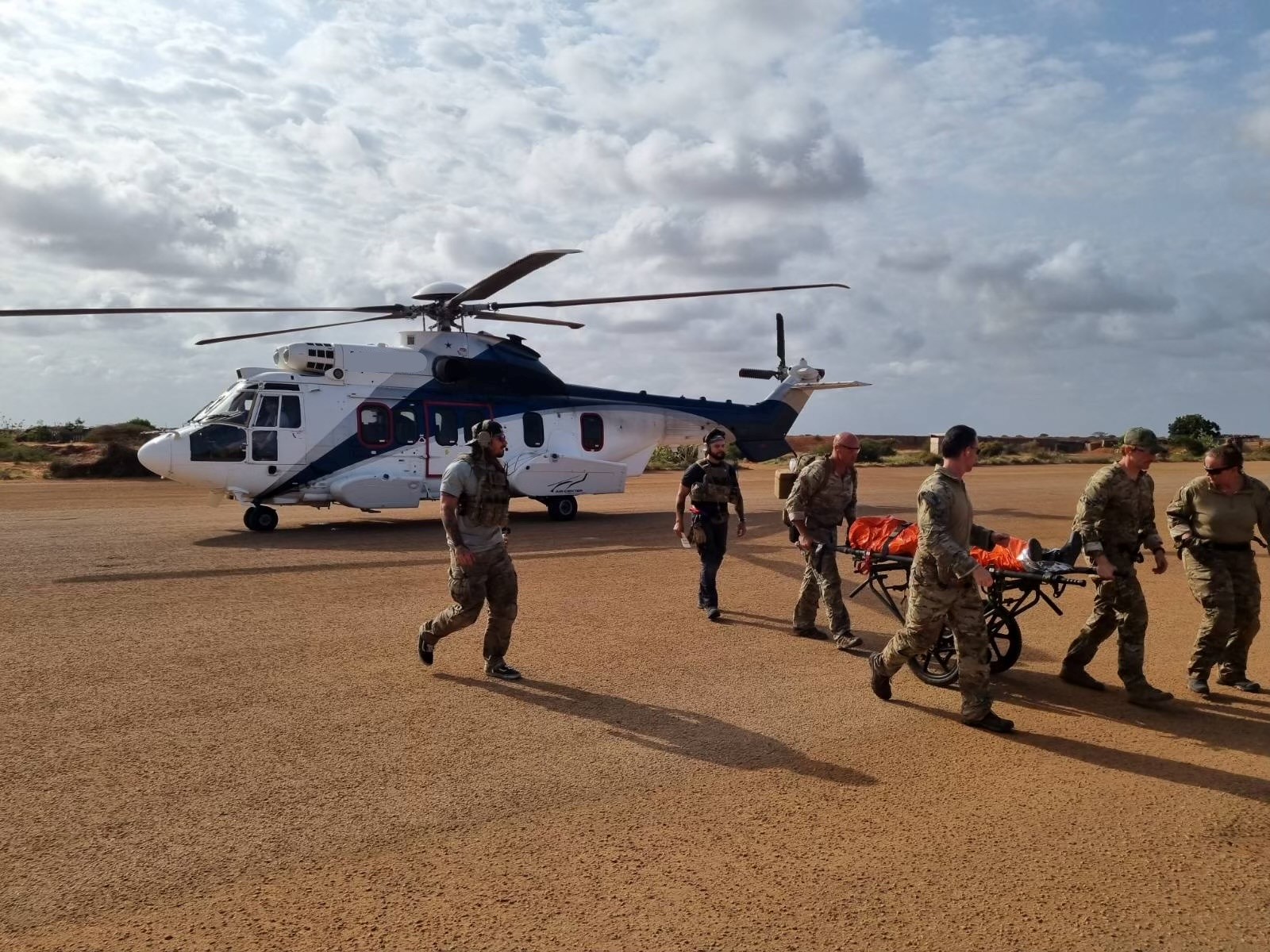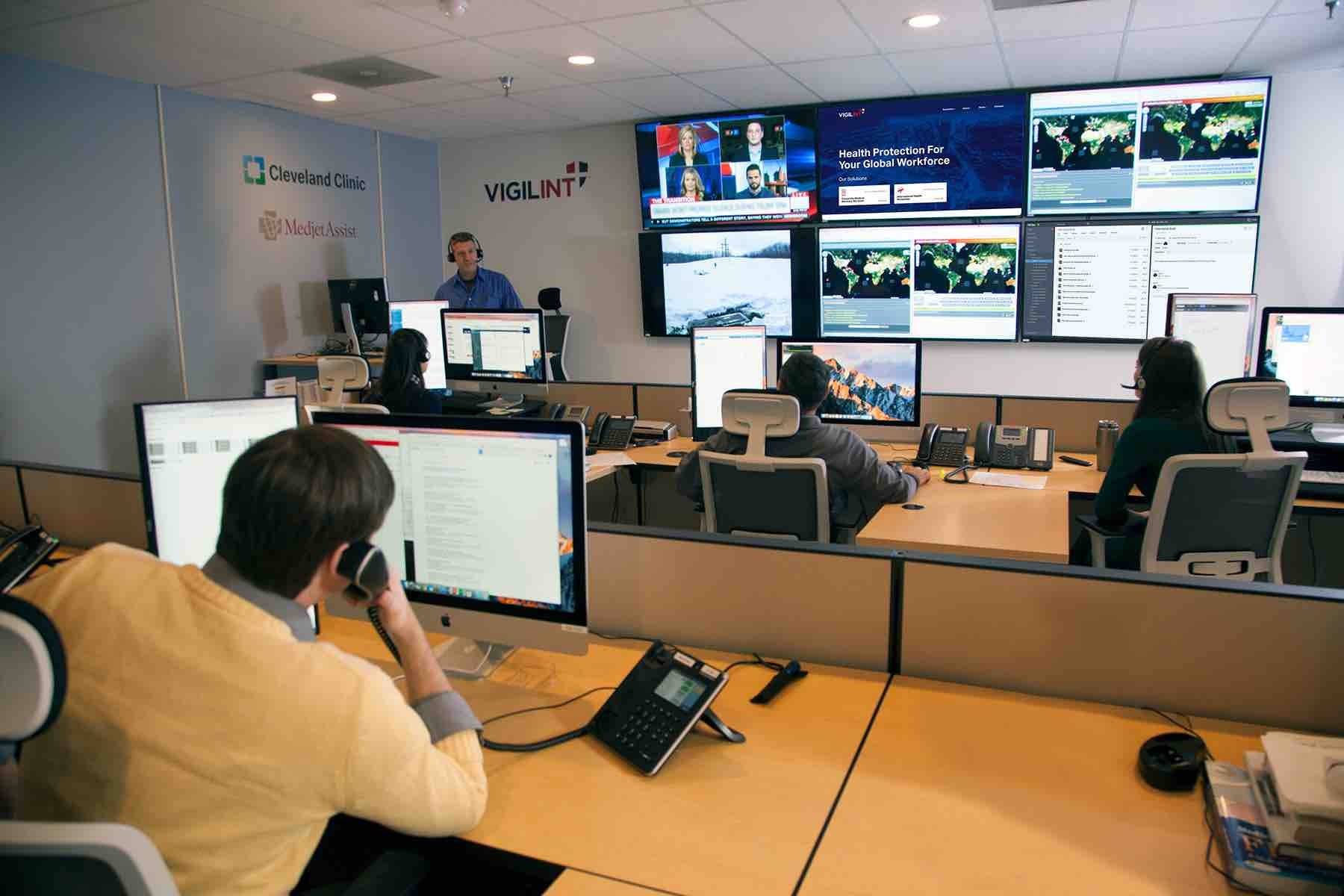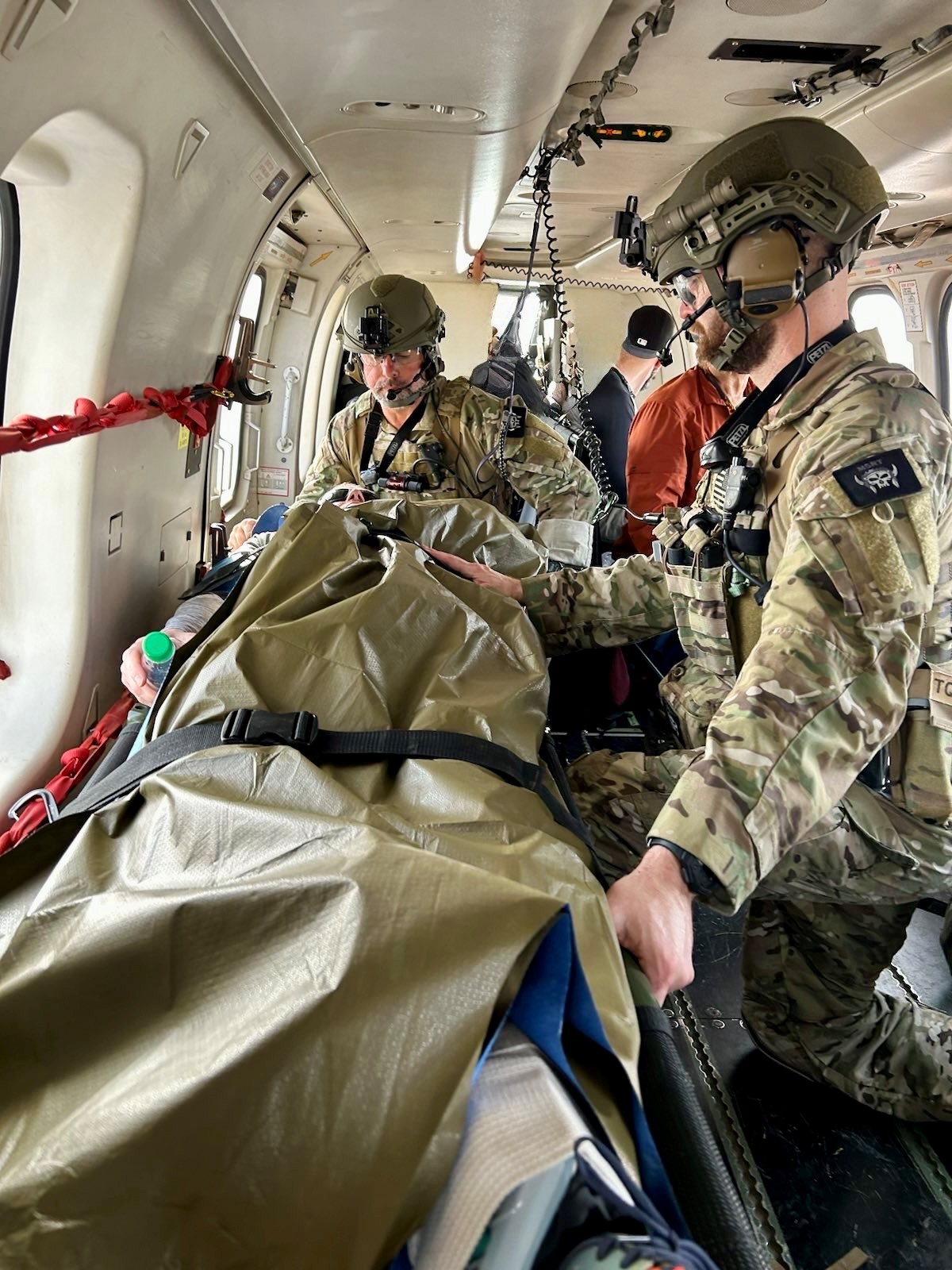

Today we’d like to introduce you to Sean Siler
Hi Sean, can you start by introducing yourself? We’d love to learn more about how you got to where you are today?
I started my career in the military, enlisting in the Army Reserve at 19, with the intention of becoming a helicopter pilot. I was in my sophomore year at California State Polytechnic University at Pomona, CA, majoring in political science, and had absolutely no interest in either medicine or business. However, during the summer of my junior year I was involved in a serious car accident that changed the trajectory of my life. The accident meant I couldn’t complete my Army ROTC program on time, dashing my goal of flying in the Army. While in the hospital, several physicians taking care of me recognized I was upset about my situation and encouraged me to consider medicine as an option. “You don’t have to be a rocket scientist to be a doctor; you just have to be stubborn,” they told me every day I was there. And as I left the hospital, I recognized, “I am stubborn!” With nothing but electives left to complete my degree, and a summer with nothing I could physically otherwise do, I completed and excelled at my pre-med requirements, completed the required testing and applications, and got into medical school.
Over the next 4 years, I earned a medical school scholarship from the Army, completed my Doctor of Osteopathic Medicine degree, became a Flight Surgeon, and earned a residency training spot at the premiere Emergency Medicine training program at Brooke Army Medical Center in San Antonio, Texas. This started me down the path as an Army Emergency Medicine physician, one which has ranged across over a dozen roles, including clinical, administrative and leadership positions, in multiple Special Operations units, and placed me in command four times from the Company level to most recently the Brigade level. The most challenging roles included serving on 4-person rucksack based surgical teams supporting the most elite special operations units in the world, which were the predicate for VIGILINT’s mobile surgical teams.
My medical career in the Army allowed me to practice emergency medicine in some of the most challenging and remote environments, including multiple combat zones. This atypical experience gave me a unique perspective on healthcare and reinforced the idea that we need to get the right care to the right places at the right time, even when traditional healthcare infrastructure isn’t available.
I’m still serving in the Army Reserve, and after almost 33 years, I recognize the blend of military and civilian experience creates a unique approach. I pursued and earned my MBA from Kenan-Flagler Business School at UNC Chapel Hill, NC and started a series of entrepreneurial efforts. I learned failure quickly but used my military resiliency and ‘grit’ to keep at it, and eventually was introduced to VIGILINT in 2015. I had an opportunity to become the majority owner in the company, after which I redefined the company’s focus, grew the team from five employees to now over 250, with over $35 million of annual revenue. We’ve succeeded enough to secure contracts with organizations like FedEx and multiple U.S. government agencies.
We operate a 50-state compliant telemedicine service for travelers, run an in-house pharmacy, a global medical logistics capability, and a robust training division, powered by almost 200 physicians, nurses, rescue specialists, and healthcare personnel. Our team blends the best capabilities in business operations with civilian and military approaches to healthcare challenges, delivered on a global scale. We have staffed small surgical teams and rescue specialists across Africa since 2018 and provide the contracted medical response for U.S. government forces on the continent. Most importantly, VIGILINT’s mission today, for government or commercial clients, is to support travelers and personnel in high-risk areas, providing emergency medical support, crisis management, and telemedicine services when people need it the most.
I’m sure it wasn’t obstacle-free, but would you say the journey has been fairly smooth so far?
It’s definitely not been a smooth road. In fact, there have been plenty of struggles and setbacks along the way. The early days of VIGILINT were especially challenging, as we had a small team and no capital to work with. We boot-strapped through the growth, sometimes sending me to the ER to work shifts to make payroll, but we grew, creating structure and capability that enabled a bigger team, better solutions and more work.
Growth is never as easy as it might seem. The idea of medical support for traveling executives makes sense AFTER you have had a problem, but getting companies to pay for a service they don’t think they will ever need is incredibly hard. Every day and every sale were hard-fought, but once won, we quickly proved our worth with companies like FedEx and secured more opportunities and contracts. Thus, our growth has been like a flywheel; slow to start but steadily speeding up. The hard part for us, and every startup like us, is surviving long enough to reach the self-sustainment point.
Medicine is a rapidly changing field, and remaining relevant requires full time dedication to the profession. Business has similar requirements, remaining cognizant of evolving technologies and daily changes in markets we compete in. As a military leader, I have similar professional development obligations. One domain is challenging enough, but in order to be relevant in all three domains, I’ve run a 16 hour a day schedule for decades.
Personally, I’ve faced many setbacks and challenges, most of which I’ve turned into wisdom and the guiding principles I live by. My combat deployments showed me the most challenging medical cases possible, yet they made me the best Emergency Physician I could be and introduced me to dozens of my current teammates at VIGILINT. I’ve invested thousands of hours and tens of thousands of my family’s dollars into business ventures that failed, but from those I learned how I failed and have not made the same mistakes twice. Lastly, I struggle daily with balancing work and career expectations of an Army Reserve commander with that of a company CEO, maintaining my clinical skills as a physician, all the while not neglecting my most important mission being present for my four kids and wife, all of which still support me despite my competing priorities.
As you know, we’re big fans of you and your work. For our readers who might not be as familiar what can you tell them about what you do?
VIGILINT is a healthcare solutions provider that focuses on supporting individuals and organizations, both domestically and internationally. We have two main customer segments: commercial and U.S. government.
On the commercial side, we specialize in telemedicine for travelers, particularly those working in international or remote locations. Our services are designed for people who may find themselves in medical emergencies while away from their usual healthcare provider or network. We don’t provide primary or routine care, rather we concentrate on solving complex problems that aren’t just medical questions, like helping get someone to a hospital in a foreign country or evacuate them home. We use our 24/7 Medical Operations Center, along with our on-call emergency physicians, in conjunction with 140+ subspecialties at Cleveland Clinic, to “solve the most complex problems, for people who cannot fail.” Sometimes, commercial clients need that level of support in-person, and we provide that with mobile clinics and emergency care for over a dozen corporate clients world-wide.
On the government side, our teams are deployed to some of the most underserved regions of the world, including Africa, where we provide Personnel Recovery and Casualty Evacuation services and surgical care for U.S. and partner forces. We operate with small surgical teams, often in locations without proper medical infrastructure. Our teams are highly mobile, working out of backpacks, and able to respond to emergencies and move within an hour if needed. Our Rescue Specialists operate from contracted helicopters and airplanes, providing rescue services in any far-flung corner of Africa. The work we do on the government side helps enable global stability by providing critical care in places where it would otherwise be unavailable.
What sets us apart is our ability to deliver high-quality emergency care and telemedicine services in the most challenging conditions. Our unique experience in combat medicine and high-pressure environments has given us the expertise to respond quickly, even in places with limited resources. In short, we take the trauma center to the patient, rather than the patient to the trauma center, because that building may be a day away.
Our brand is one defined by quality, period. We are not the cheapest solution, and we are not the routine one. We are chosen by organizations with the highest risk or most complex problems, who cannot fail. Our physicians are mostly special operations alums, often thought leaders in surgical and emergency medicine fields, and the most innovative and flexible thinkers in medicine. Our operations staff has the tolerance for ambiguity and the bandwidth available to surge to meet any problem. We vertically integrated the entire medical experience, from our operations center, our physicians, our pharmacy, and our logistics division, all the way to our carefully vetted partners like Cleveland Clinic. We invested in this to ensure a bespoke experience, providing ease of mind knowing that a bad day will be less so because of VIGILINT. Our Raleigh-based headquarters is the hub from which our team is spread across over 30 states and multiple countries. This team is the heart of VIGILINT, and their daily efforts provide the quality and caring support that separates VIGILINT from any other medical response company. Our VIGILINT values define the company ethos, seen in everything we do.
One of the things I’m most proud of is our impact. We help make the world a safer place by providing critical healthcare where it’s needed most—whether that’s helping a corporate executive feel secure while traveling or providing life-saving care to military personnel in the field. Our mission is to make sure that someone having the worst day of their life isn’t having their last one.
What sort of changes are you expecting over the next 5-10 years?
Healthcare and telemedicine industries are evolving rapidly, and I see several big trends shaping the next 5-10 years. One of the most significant trends is the increased integration of technology, including artificial intelligence (AI), into healthcare delivery. AI has the potential to transform telemedicine by improving diagnostic accuracy, predicting patient needs, and enhancing patient care. However, it’s a double-edged sword, as it also presents challenges in terms of staying ahead of the curve while also ensuring that the technology is used wisely. We’re actively exploring how to integrate AI into our services, but we’re being cautious about not getting too far ahead or too far behind.
The other big trend is the rise of global mobility and the increasing need for remote healthcare solutions. With more people traveling for business, work, or leisure, there will be a growing demand for services like ours that can provide medical support no matter where people are. We are seeing this already with the demand from multinational companies and organizations, and I expect this to continue to grow.
At the same time, the world is becoming more volatile, and that introduces both risk and opportunity. While there are more people needing our services in conflict zones and underserved areas, it also means our team members are exposed to more danger. This is something we constantly manage as we grow, and we’ll need to be more agile and flexible in how we respond to global crises.
On the corporate side, I believe companies will continue to see healthcare as a critical investment, especially in terms of keeping their employees safe and healthy while traveling. As inflation and healthcare costs continue to rise, businesses will need to find solutions that protect both their bottom line and their people.
At VIGILINT, we plan to stay at the forefront of these changes by continuing to adapt and deliver the best possible care, no matter where our clients are or how challenging the circumstances.
Contact Info:
- Website: https://vigilint.com/
- Facebook: https://www.facebook.com/VIGILINTMED
- Twitter: https://x.com/VIGILINT_
- Youtube: https://www.youtube.com/channel/UCowA3QXBr2-OQgodl5rTR2w















